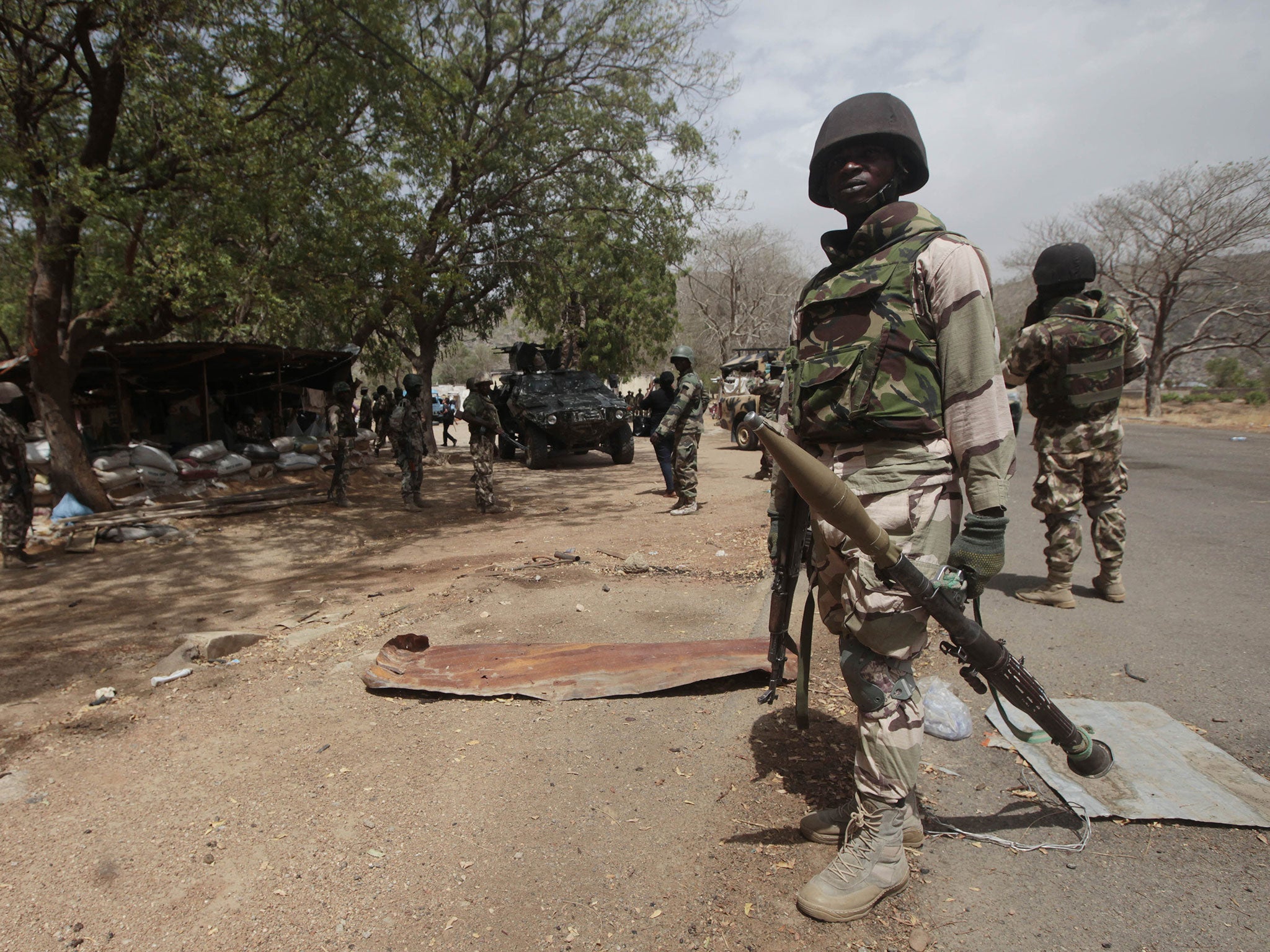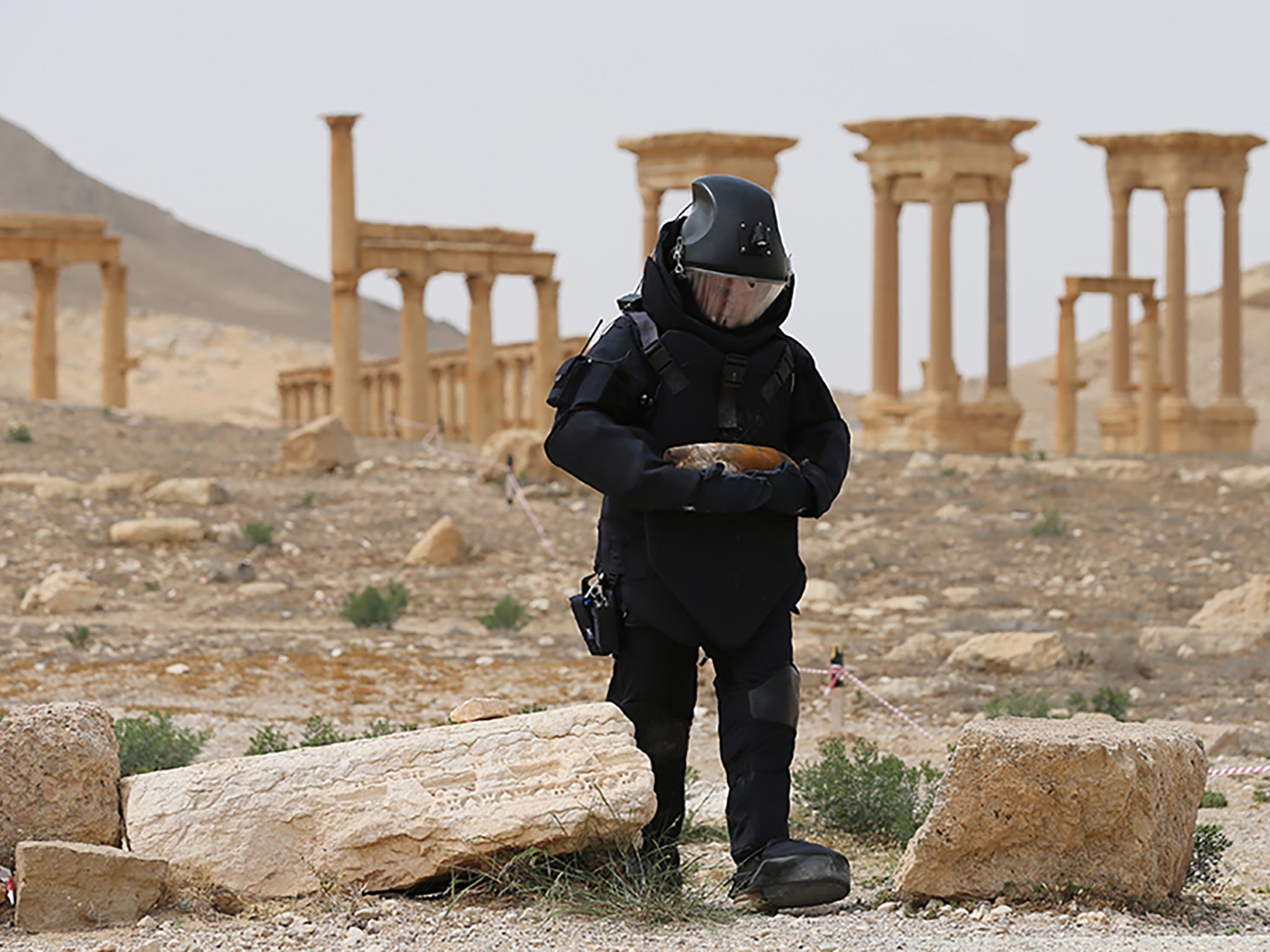Boko Haram 'strapping bombs to birds' as Isis-affiliated group continues bloody insurgency in Africa
The commander of a multinational force fighting the Islamist insurgents revealed the discovery

Your support helps us to tell the story
From reproductive rights to climate change to Big Tech, The Independent is on the ground when the story is developing. Whether it's investigating the financials of Elon Musk's pro-Trump PAC or producing our latest documentary, 'The A Word', which shines a light on the American women fighting for reproductive rights, we know how important it is to parse out the facts from the messaging.
At such a critical moment in US history, we need reporters on the ground. Your donation allows us to keep sending journalists to speak to both sides of the story.
The Independent is trusted by Americans across the entire political spectrum. And unlike many other quality news outlets, we choose not to lock Americans out of our reporting and analysis with paywalls. We believe quality journalism should be available to everyone, paid for by those who can afford it.
Your support makes all the difference.Boko Haram is strapping bombs to birds as it continues to develop more deadly weapons in its bloody insurgency in Africa.
The commander of a coalition battling the Isis-affiliated militants revealed the discovery at a meeting with American diplomats and security officials.
Major General Lamidi Adeosun showed gruesome photos of the victims of Boko Haram’s attacks and their latest weapons during the briefing at the Multinational Joint Task Force's headquarters in Chad on Wednesday.
One picture showed a bird with an explosive strapped on its back, demonstrating “a lot of ingenuity,” he said.
Maj Gen Adeosun said his forces had received intelligence that Isis members were being imbedded with Boko Haram but that the Nigerian terrorist group had not satisfied requirements for greater operational co-ordination.
It is not the first report of birds being used to carry explosive devices.
Photos emerged in July last year claiming to show bombs strapped to chickens by Isis fighters in the Iraqi city of Fallujah.
There was speculation that they could be resorting to increasingly bizarre means of destruction while running out of ammunition but the account could not be verified.

Isis is known to be unusually liberal with its use of explosives, which it manufactures using cheap chemicals and equipment readily available on the civilian market.
A Syrian officer involved in the operation to re-take the group’s former stronghold of Palmyra last month described how jihadists had “booby-trapped everything”, including animals and trees.
Boko Haram’s leader Abubakar Shekau made a pledge of allegiance to Isis in March last year and released a message urging its fellow sub-Saharan jihadists to do the same, further increasing the group’s reach.
The move was a major coup for the so-called Islamic State, which re-named its affiliate Wilāyat Gharb Ifrīqīyyah (West Africa Province).
After expanding its campaign of terror from Nigeria to Chad, Niger and Cameroon, Boko Haram was named the deadliest terror group in the world last year.
The Global Terrorism Index said it was responsible for 6,644 deaths in 2014 and that number is expected to have risen as its insurgency against Christians and local government continues.
As well as high profile terror attacks and massacres, the group has become notorious for large-scale kidnappings including the abduction of more than 270 schoolgirls from Chibok.
Brigadier General Donald Bolduc, commander of US special operations in Africa, described the surrounding Lake Chad Basin region as “ground zero” in the fight against extremism in Africa.
America, Britain and other European nations are among those supporting military intervention against Boko Haram.
More than 30 personnel from the British Army’s Royal Anglian Regiment were deployed to train Nigerian soldiers earlier this year.
“We stand united with Nigeria in its efforts to defeat the murderous Boko Haram extremists,” Michael Fallon, the Defence Secretary, said at the time.
He committed to doubling the number of British personnel carrying out training in Nigeria this year, sending explosives specialists, medics and an RAF training team.
Additional reporting by AP
Join our commenting forum
Join thought-provoking conversations, follow other Independent readers and see their replies
Comments